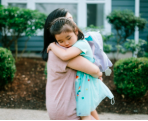Preparing young children for school isn’t just about learning the alphabet or counting to ten. It’s about nurturing the whole child—socially, emotionally, physically, and cognitively—so they can enter their first classroom with confidence and curiosity. Early childhood education plays a vital role in this process, offering children the tools they need to thrive during their foundational school years and beyond.
Why Early Childhood Education Matters
From birth to age five, a child’s brain develops more rapidly than at any other time in life. During these formative years, quality early education programs create nurturing environments where children learn through play, exploration, and guided activities. These experiences are not only fun but also essential for developing school-ready skills.
Children in early learning programs often show stronger language development, better problem-solving skills, and improved attention spans. Just as importantly, they learn how to work with others, express their feelings, and navigate new routines—skills that are crucial for a successful transition into kindergarten and elementary school.
Key Components of School Readiness
School readiness goes far beyond academics. It includes a broad set of skills and behaviors that help children adapt to a structured classroom setting. These include:
Language and Communication: Early learners who can follow directions, ask questions, and express their needs clearly are better prepared to engage with teachers and peers.
Social and Emotional Development: Understanding emotions, taking turns, and resolving small conflicts help children build positive relationships in a group setting.
Motor Skills and Self-Care: From using scissors to putting on a jacket, these practical skills foster independence and confidence.
Cognitive Readiness: Recognizing patterns, counting objects, and exploring cause-and-effect relationships spark curiosity and build a strong learning foundation.
The Role of Families and Educators
Parents, caregivers, and educators each play a powerful role in a child’s school readiness. Daily conversations, storytime, and simple routines at home help strengthen early literacy and numeracy. Likewise, preschool teachers support growth through age-appropriate activities, structure, and encouragement.
When families and educators work together, they create a consistent support system that boosts a child’s learning journey. Open communication, shared goals, and active participation in a child’s development can make a big difference.
Creating a Positive First School Experience
Starting school can be a big step for children and their families. Preparing ahead of time—by visiting the new classroom, practicing school routines, and talking about what to expect—can ease anxiety and spark excitement.
Early childhood education doesn’t just get kids ready for the first day of school. It helps set a lifelong attitude toward learning, builds resilience, and lays the groundwork for success in school and in life.
Final Thoughts
Every child deserves a strong start. By investing in early learning and supporting school readiness, we empower young learners to explore their world with confidence and joy. With the right foundation, the journey through school becomes not just easier—but more meaningful and rewarding.














